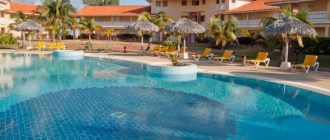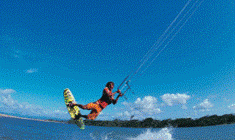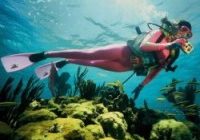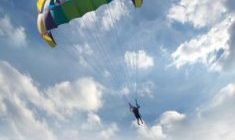Late that afternoon I awoke and spent two days getting over the effects of excessive rum and aspirins during the past month, while the hospital staff set about cleaning me up by removing dirt and coagulated blood over half my head. I was told that a private room in this hospital would cost about fifty United States dollars per day, so I went into a public ward as ‘a seaman discharged sick from a British ship’ and became No. M.28 among the dark native Bahamians. There were four other diabetics in the ward of sixteen, the control of whom was almost impossible, for there was no effort made by the nurses to make them eat all of their food at meals, and relatives brought in unknown quantities of fruit. Breakfast for diabetics was the same each day of the year: porridge, two rounds of bread, and one egg! Sanitation was a problem, as was apparent by the state of the tiled washroom each morning.
For the first three days I had no soap, no toothbrush, no razor, and I never had any shaving cream, but I did have a very good bath every morning, and washed off all the accumulated grime of the voyage.
I learnt to eat with my fingers; no knives whatsoever were allowed, the safety razors were sealed but occasionally a plastic fork or spoon appeared.
One patient, an ex-police sergeant, and now an ex-alcoholic, caused some amusing disturbances at all hours, though at the expense of everyone’s rest; he liked doing the opposite to what he was told, and spent the nights wandering in the hospital until tracked down by the staff. Feeling a bit better on the fourth night, I was able to sit on him on the floor with two darkies and hold him down until a dusky nurse appeared with a hypodermic; then we knew we could all return to our beds, and have a few hours’ sleep. The man in the next bed thought nothing of lashing him with a leather belt to keep him away but as often as not it had no effect!
He had certain other charming habits such as urinating over his bed and then emptying the entire contents of a talcum powder can everywhere; I felt very sorry for the sister, who was a very able person.
None of the other patients in the ward spoke to me until the third evening when, after along silence broken only by whispers, a darkie came over to my bed holding up the Nassau Tribune as if to compare me with something in the paper; he then turned it round and asked if the picture was of myself. With recent events I had forgotten all about my visit to the US Naval Facility in Eleuthera, and it was a surprise to see many photographs of Dawn Star and myself with a long article. He held out his hand offering me congratulations, and from then on I had visitors from neighbouring wards, fishermen and storekeepers from the ‘out islands’. Their wives and sisters brought me fruit, for as they put it ‘I must be a lonely man without friends in Nassau’.
Mary Bakewell brought me books and eating utensils and posted my mail.
The Griffins came to see me on my last evening, bringing Peter Rose with them, and as it had got around who I was, most of the European doctors and staff came along too.
Sunday afternoon was complete bedlam; people poured into the hospital in their thousands, not necessarily to see a relative but to meet their friends; many a time I saw a dozen relatives arguing at the top of their voices across the prostrate body of a desperately sick man too weak to lift a finger.
I became a curiosity on these Sunday afternoon visits and drew the attention of two Bible-punchers, who wanted to pray for my soul, though as I felt better each day, I told them that I did not think it was about to depart from me! One came from ‘The Brotherhood’ and the other, a white man, said he was a member of the Plymouth Brethren. Tracts were passed round and across the ward I heard the voices of men in prayer.
The doctors and European sisters were obviously so overworked that the nursing consequently suffered and after a week I discharged myself to the out-patient clinic, quite desperate to get back to sleep at night, besides being very worried about Dawn Star.
Returning aboard, I noticed that various craft had hit the topsides and some stanchions had been torn loose.
A resident Scottish engineer helped me to shift berth, and I spent the next fortnight quietly at maintenance and on the social round of yachts. Ashore, beer cost six shillings a pint, but rum was still comparatively cheap. I collected my mail regularly from Barclays Bank and learnt that a parcel from my agent awaited collection at the airport. On local advice, I went to a parcel delivery firm, who then spent three days finding it, for someone had stuck it in the cooler, as it was marked ‘Medical stores, keep cool’! When I asked for the stores to be sent to me in bond, as they were for re-export in a British Registered Ship to which they were consigned, I was asked to go out to the airport and discuss the matter with the customs officers. The airport is a long way out of town and there is no public transport in the island. Taxis are consequently very expensive. Friends advised me to pay the duty as being the cheapest way out; I had to pay an average of 20 per cent import duty plus a further duty of 17 per cent on the cost of the freight. I was even charged on the insulin so necessary for my life, and the parcel was opened for every item to be checked by the authorities; I have never eaten such expensive sardines in my life!
Buying equipment ashore was also an expensive pastime, as was proved when it became necessary to renew the wire pendants for both halyards.
I finished off the last of the eggs with which I had sailed from England; they were still good, though now the yolks always broke on dropping them into a pan. I had lost only two, which had cracked, out of the original 170. This was a far lower percentage than many of the ‘fresh’ dozens I had bought in Grenada and Antigua, only to find as many as 50 per cent of them rotten. I still had some of the original salted bacon left; at fourteen months old it did not taste too bad with the rancid fat cut off.
Captain and Mrs Pengelly took me away from my troubles and problems for an evening with dinner at their house, where I met the director of prisons and his wife.
The hurricane season opens here on June 1st, though no one takes much notice; so it was a shock to hear Radio Nassau broadcast on the evening of the 5th that there was a tropical depression Force 9, about 700 miles to the south-south-west of Nassau. Early next morning it was classified as Hurricane Alma, and headng for the Florida Strait.
‘Hurricane Hole’ in the harbour immediately filled with yachts, and in all the bars along the waterfront men collected to discuss the situation and decide what they might do; some were undoubtedly extremely shaken judging by the sudden rise in whisky sales, and I realized that to remain in Nassau would be utter folly, as the holding ground is so poor, being coral gravel. The wrecks of yachts and craft round the harbour lay as sombre proof of last year’s ‘Betsy’.
I looked up The Yachtsman’s Guide and came to the conclusion that the nearest safe place was Little Harbour Cay, in the Berry Isles; some fishermen told me that they much preferred it to Nassau, so, now complete with charts, and in all respects nearly ready for sea, I went into town for the last time to obtain clearance for Morehead City in North Carolina. For this small piece of paper I paid £1 and was also given some advice: ‘Why not find yourself a bunk ashore in a nice comfortable hotel, cap’n, and then you can collect the insurance next week!’ Words failed me, for Dawn Star was not insured.
That evening I dined on conch at ‘The Fisherman’s Wharf’ with Hal Newell and his wife from Slow Poke. A heavy gloom and depression had set in, for it was now known that gale force winds would be over the island within thirty-six hours. Some yachtsmen told me that they would look for my bones on the shores of Little Harbour Cay in a week!
My dinghy had been holed by glass on the beach that afternoon, so Hal took me off in a boat. Jumping down into it at midnight, I fell and sprained my left wrist, which made the job of weighing the anchor almost impossible in the morning; but having sailed Dawn Star 7,500 miles from England, I was determined not to lose her. I could not count the people who stood on the decks of yachts and lighters and piers waving as I made sail with one hand and so headed for the open sea, altering to 330 degrees magnetic for the Berry Isles.
Outside the wind increased to Force 5, then 6, and I had to reef the mainsail; at 17:00 I anchored in the lee of a small island outside the channel bar leading into Little Harbour as there was not sufficient water to enter. There were two forty-foot fishing boats without power, and their skippers came over for a chat. Nearing high tide a local man came off in the dark and I motored in, anchoring in a pool of eight feet and laying out 100 feet of cable. My pilot, Mr Darvill, stayed to yarn over coffee until midnight, when he left for the shore, and we wished each other good luck for the morrow.
It rained very heavily that night, and at dawn I was glad to see that I was completely surrounded by islands, the tallest, close to windward, being sixty feet high, while nearly all round were sandy beaches with only outlying crops of coral – a thought should the yacht be driven ashore, for there would be less chance of damage. The morning radio report from Miami was black with hurricane warnings out for Florida; the eye was thirty miles across and with winds of 117 m.p.h. it crossed Cuba, going through the suburbs of Havana at 09:30; the Florida Keys were being evacuated. I veered all of the cable, removed the cockpit dodgers, ran off flag halyards, and lashed the bunt of the mainsail tightly; all in order to cut down windage. The eye was then 250 miles south-west of me, with winds in Little Harbour only around Force 5.
Throughout the day and night Radio Miami, where it was so dark that the automatic street lighting came on, gave five-minute reports on events as they happened, and also instructions to the populace. In Cuba all power had failed, and they were without radio contact. With ‘Alma’ advancing at a speed of 16 m.p.h. Miami was getting ready for the worst; all public services were stopped at 12:30, except the police, who were all called out. I heard that there were dreadful traffic jams as people left work to go home; factories and schools shut, and shop windows were being boarded up. High tides of eleven feet above normal were to be expected and all small vessels were going inland into the canal system. As I listened in that afternoon the wind got up to gusts of only Force 8 in the lee, though the visibility in the dense rain-storms (about five inches fell in twenty-four hours) was down to 250 yards. Through my binoculars I could see the spray flying clear over Alder Cay, an isle one mile long by a quarter wide and forty feet high! Then the radio failed for a minute, as it did twice more, for Miami experienced many power failures; I was glad I was not one of the forty-two vessels in distress; aboard there was nothing left dry.
Cooking supper, I heard that ‘Alma’ was heading for Tampa on the west coast of Florida; there were twisters in Chicago with many dead and injured, tornadoes in Kansas where 4,500 were homeless, and damage to the tune of 200 million United States dollars.
When I landed after it was all over the dozen or so inhabitants of the settlement were drying out their houses and possessions while the steam rose from the swampy land. I walked up to the church, the half-used candles still on the altar, 20 per cent of the roof gone, water everywhere and two paraffin lamps swinging like ghosts from the rafters. The eeriness was accentuated by the silent village, deserted years ago, the boarded up houses waiting for owners who would never return, their boats left to rot on the beach. As a sign of former prosperity, there were large mounds of tens of thousands of conch shells, which had contained the meat on which this small community of 200 sponge fishermen had once lived.
I walked across the island to the beach on the windward side; it abounded in lizards and land crabs while the wild flowers contrasted in lovely purples, yellows, and mauves; the beach provided me with a supply of interesting shells.
It became a fine summer’s evening as the wind went right down and I felt very much like ‘The Outcast of the Islands’ after my complete rejection of Nassau.
The principal keeper of the Imperial Lighthouse at Great Stirrup Cay came down to the dock as I anchored in Panton Cove; Captain Pengelly had requested my arrival and condition to be radioed through as soon as I appeared; that is, if I appeared.
The anchorage was very attractive, but the midges and mosquitoes were so prolific that I rigged netting over the hatches and scuttles. For my evening meal, I fried a large steak out of a seven-pound barracuda, which an American from the US tracking station gave me.
It was interesting to be shown over the lighthouse, one of a dozen which guard the principal waterways through the Bahamas; they are called the Imperial Lighthouses because their upkeep is paid for out of the ‘Light Dues’ in the United Kingdom. The keepers spend eleven months of the year with their wives in these small outposts, returning to Nassau for a month’s leave. They are visited officially only every three months, so the keepers always welcome a passing yacht which calls for a chat and water and takes the mail.
An American seven-tonner came in and asked if they could go alongside the dock; the party of four was cruising the Bahamas without a dinghy!
The ship’s bottom had begun to grow weed, for it was now six months since I had slipped the yacht at St George’s. I scrubbed her the evening before departure. On this occasion I did it very carefully as there was a long trip ahead; it took an hour as I swam round with a long-handled scrubber, and this worked up a good appetite for dinner aboard Ylva with Hans and Rosemary Hoffman from Berlin.
On Monday June 13th I sailed for West End, Grand Bahama, entering the posh marina there at 09:30 the following day.
Bessie and Al Leverentz showed me the ropes; the shop at the commissariat; and for ice, I was told to take two buckets over to the fabulous Grand Bahama honeymoon hotel built by Butlins. They gave me a lot of advice about the American intracoastal waterway, and Al very kindly lent me fifteen United States coastguard strip charts of the entire canal system up to New York, on the gentleman’s agreement that I would post them back on arrival there; all sealed over a bottle of rum.
The dubious facilities provided by this marina had to be reckoned with in the morning when I was asked to pay five United States dollars, an utterly exorbitant fee for the privilege of stepping ashore, filling up with water and gasolene and two showers; I left in disgust, for the north. With the sun’s altitude at 85 degrees, it was very hot and I got badly burnt.
Bound north, I intended to ride the Gulf Stream, and in the first two days it gave me over seventy miles; but there was a constant cross sea, which produced a violent motion and made life an intolerable misery. Just as my left wrist was getting over the sprain in Nassau, I fell on it again, adding to the pain; the only pleasurable thought, as the squalls came up and I handed the main for the sixth time that day, was that at least they were blowing the yacht in the right direction. For almost every imaginable reason, I was glad to be clear of the Bahamas, though I did not get clear of the weed which kept choking the fish of the log for another two days. While some yachtsmen had told me that sailing up the axis was like driving a car down Broadway, I passed only four ships in four days.
With all the dampness, the bread bought at West End soon went mouldy and had to be ditched.
To the west I heard a very long and very distant rumbling noise, which gradually faded away, and later I heard on the radio that a rocket had been fired off from Cape Kennedy, 120 miles on the port quarter.
On the evening of the 19th the wind switched right round and for two days I had a north-easter which, against the Gulf Stream, kicked up even more of a sea. The Admiralty Pilot says that ships of all sizes are advised to keep clear of the Gulf Stream when a north-easter sets in; unfortunately they do not advise what action should be taken when a small ship is there at the time it does. Although I was now unable to point for Morehead City, I was able to trim the sails and let her work to windward by herself on the storm foresail and with ten rolls in the mainsail. Under these conditions I could stay in the saloon and have some sleep, lashed into the starboard bunk. It seemed as if all the Atlantic poured over the yacht many times over.
At dawn on the 22nd, I observed that the water was olive green, so I had crossed the Stream, and as I got farther away from it, the seas eased down. At 11:00 I picked up Bull Bay buoy, and then Cape Romain beacon. The sun came out, and then the wind went down to nothing as I anchored about two miles offshore in two fathoms as darkness came in.
At 10:00 on June 23rd I rounded a stony mole and entered the United States of America, motoring in calm water the last eight miles up to Georgetown, South Carolina.





